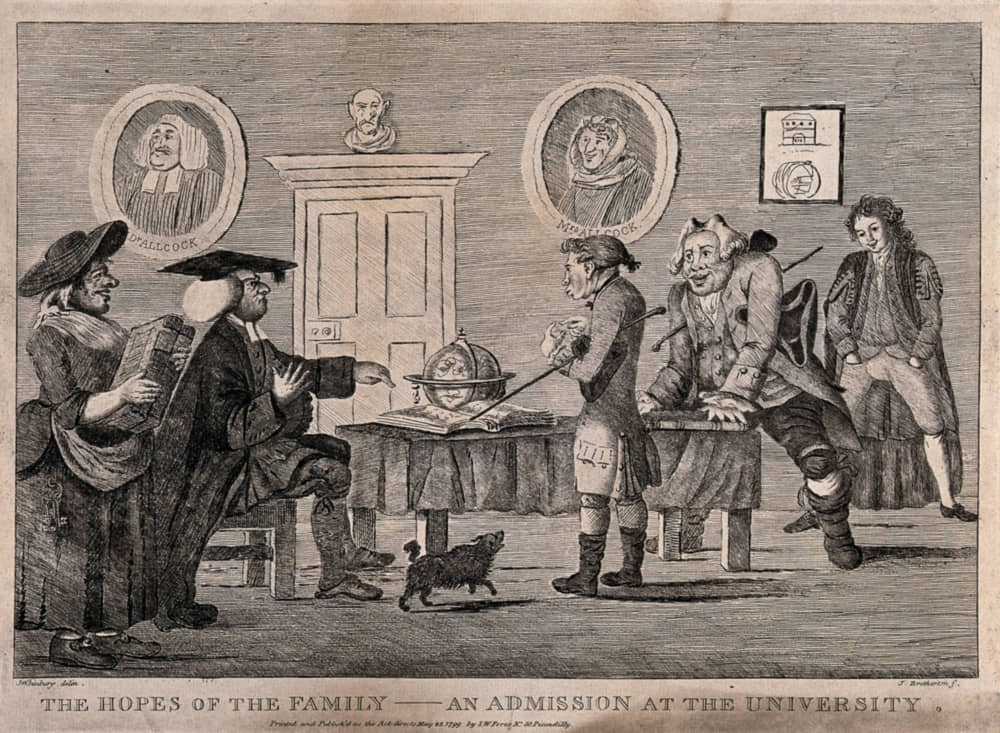Amis, Bradbury and Lodge, very different as they were, all now seem like products of other, gentler ages, ones in which authors sought to offer satire with the shaming that hypocrisy deserves, while finding humour, and very much of it, in the varied adventures of protagonists and others. And so still with the more mordant Coming from Behind (1983) as Howard Jacobson lay bare Wrottesley Poly and some of its members. The black-comedy A Very Peculiar Practice (1986, 1988), became very much more biting in its second series as the American Vice-Chancellor took over and students were removed, with the last episode entitled “Death Of A University.” The writer, Andrew Davies, had lectured at Coventry College of Education and then the University of Warwick. Here, however, it was commercialisation, notably globalisation, that brought a traditional university to its abrupt close.
That topic could still be handled in fiction, but how can writers cope with the current evil confluence of the toxic effluvia of faddish management with woke-ish staff and students.
Set in fictional Pembroke University, the American television series The Chair (2021) sought with some success to handle issues of diversity, gender and behaviour, but stayed off a number of the delights of the modern university, such as the sheer aggression that explode these envelopes, the stress affecting so many staff and students, and the particular delectations of fighting the world’s battles on campuses let alone the “trans” and others policy of supposed aggressions.
In Britain, America and elsewhere, each week brings a new case of intimidation of staff, with administrators, “colleagues,” and students all joining to deal out the shit. Sorry if that offends you, but only excremental imagery on the eighteenth-century pattern captures the poisoning of the culture as well as the destruction of so many individual careers, and the deadening, nervous pall of concern that pervades universities, rather like a toxic smog.
ABBA in “Waterloo” proposed that “the history book on the shelf is always repeating itself,” but that is certainly not the case for modern academe in Britain or America. The present situation is more pervasive, invasive and brutal than the Cold War in these countries.
So, what becomes of academic satire? One approach is simply to print some of the nonsense emanating from universities. It is more ridiculous than most satirists could devise, and frees the latter from the danger of vilification through invention. Particular humour of a mordant type attaches to the idiocies surrounding decolonising curricula and enforcing authoritarian notions of equality and diversity. Racism directed against whites underlies some of the discussion of white “privilege.”
What is less clear to outsiders is how this world impacts on individuals; indeed how it provokes the full range of human action from bravery to cowardice via complicity. How shocked can you be when you encounter the latter on the part of those you like and/or admire? So universities as setting for tragedy in any fictional form.
But that can overlap with satire: academics and students ignoring refugees from horrible wars, notably at present in Ethiopia so that they can intone against Rhodes’ statue. Far better to hurl opprobrium at white on black violence in the past than to respond to black-on-black violence.
Tragedy and satire. That, indeed, is the present situation. False values can always attract the satirist. The comic element is very rare and even then very black, if I am allowed with my name to say that, but satire does not have to be funny. What it should do is hit the target, and universities provide so very many.
Jeremy Black is a British historian, and a prolific author. His most recent books include, Military Strategy: A Global History, War and Its Causes, Introduction to Global Military History: 1775 to the Present Day, and Imperial Legacies. The British Empire Around the World.
Featured image: “A young man examined for entrance to university,” an etching by K. Bretherton, after Henry William Bunbury, published May 23, 1799.
